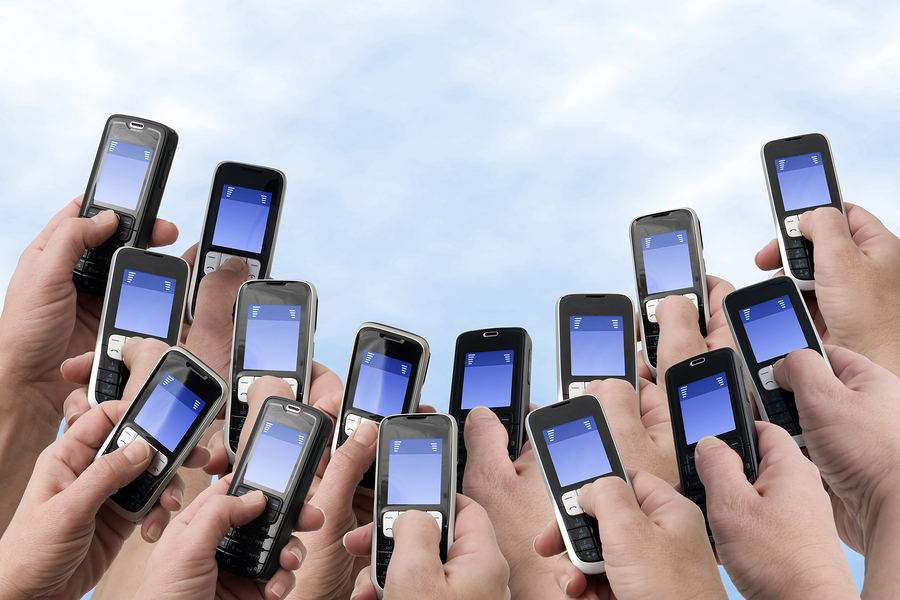- Make It Yourself Lavender Heart-Shaped Bath Bombs!
- 20 Things You Never Knew About “Down There”
- 12 Best Foods For Those Suffering From Arthritis Pain
- 12 Personal Hygiene Mistakes Almost Everyone Makes (Mom Never Told You About #4!)
- 15 Medicinal Plants And Herbs From The Cherokee People
- 12 Mind-Blowing Benefits Of Drinking Coconut Water During Pregnancy
- 12 Outstanding Winter Foods That Won’t Fatten You Up Like A Christmas Turkey
Residue On Your Cellphone Can Reveal More About You Than You Ever Thought Possible

Photo credit: bigstock.com
In many ways, cell phones have become tracking devices. We all know that they can reveal a lot of information about you, such as your location, who you called, and when you called someone. And if you have a smartphone, that’s just the tip of the iceberg. All the metadata we accumulate can tell both hackers and the government about where we shop, what we like to eat, the types of food and entertainment we enjoy, and so much more. This has led to a debate about the need to respect individuals’ privacy in today’s digital interconnected era.
But what if we told you that even if you changed all your apps to the maximum privacy settings, disabled cookies, and only browsed the web in private viewing mode, that the powers that be could still find information about you? It’s true, and believe it or not, it has nothing to do with your metadata or phone records.
Scientists have discovered that residue from skin contact and trace elements of food and drink found on our cell phones can reveal a staggering amount of information about our lives. In this article, you’ll learn how even if you follow every Edward Snowden-prescribed privacy precaution, your phone can still give away your secrets.
You have probably seen it before: One day, you use your cell phone after working out, or before you’ve had a chance to wash your face. You look down after your call and see an almost greasy imprint left from your hand or cheek. It turns out that this happens all the time, even if it is not visible, and these residues can reveal a lot about our lifestyles, health, diets, and more.
A group of scientists at the University of California, San Diego has discovered that taking a simple cotton swab of a cell phone could reveal all such information, and it could have profound implications in areas from medical research to law enforcement.
Continue to Page 2

Photo credit: bigstock.com
Chemical traces from our bodies transfer onto everything we touch, whether that’s our clothes, the remote control, the keyboard, or our cell phone. “[W]e realized we could probably come up with a profile of a person’s lifestyle based on chemistries we can detect on objects they frequently use,” commented pharmacology professor Peter Dorrestien, who presided over a study that confirmed this to be the case.
The study involved 39 volunteers, who allowed their cellphones to be swabbed. The researchers also swabbed the participants’ hands. They then ran the samples through a chemical analysis process called mass spectrometry to determine what stories the trace amounts of residue would reveal.
The results were astonishing: From the body grime left on cell phones, researchers were able to determine whether the person the sample came from was male or female, what types of foods they ate, and even if they were taking certain kinds of medication.
The samples included residue from skin as well as trace amounts of food and chemicals that the participant’s bodies came into contact with. When the researchers cross-referenced the samples with a chemical database, they discovered the traces were of skin creams, sunscreen, hair dyes, and bug spray.
Using such data, it is easy to extrapolate information about a person’s lifestyle. For instance, the presence of both sunscreen and bug spray suggests that someone spends a lot of time outdoors. Heavy amounts of expensive cosmetics suggest a different lifestyle, and so on.
There were also food and beverage traces detected. The scientists could determine if a specific spice or herb was in someone’s diet, what types of alcoholic beverages they preferred, and if they were a coffee drinker. Perhaps most shocking of all was what it revealed about health. Using the trace residue from the phones, the scientists could tell if someone was taking antidepressant or anti-inflammatory drugs or other types of medications.
READ ALSO: How To Be Smart About Using Smartphones And Other Gadgets Infographic
While the data may not be as accurate for the purposes of law enforcement as, say, a DNA test, it shows that if someone with the know-how gets their hands on your phone, they can be afforded an incredible window into your life—even if they never turn it on.
References:

































